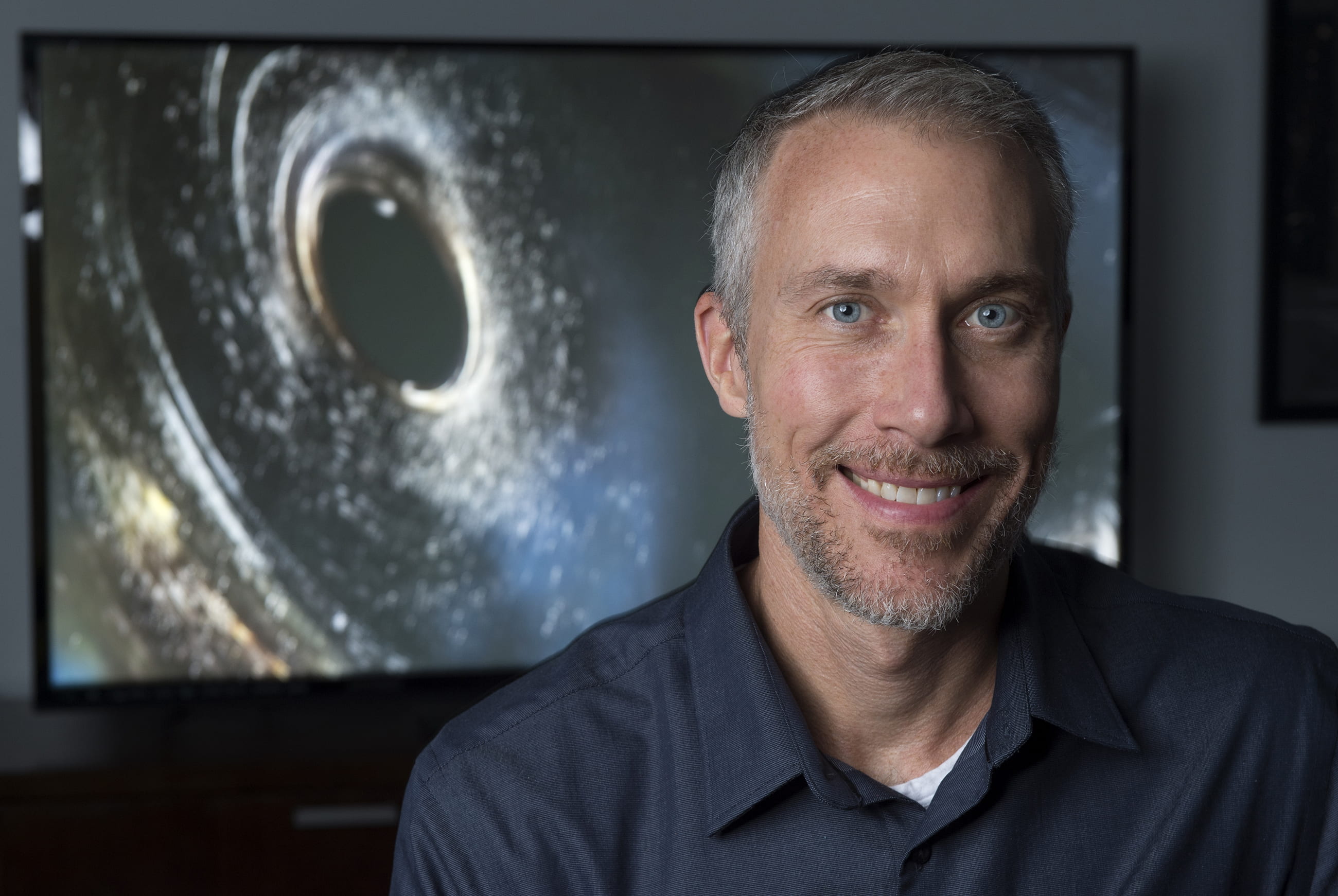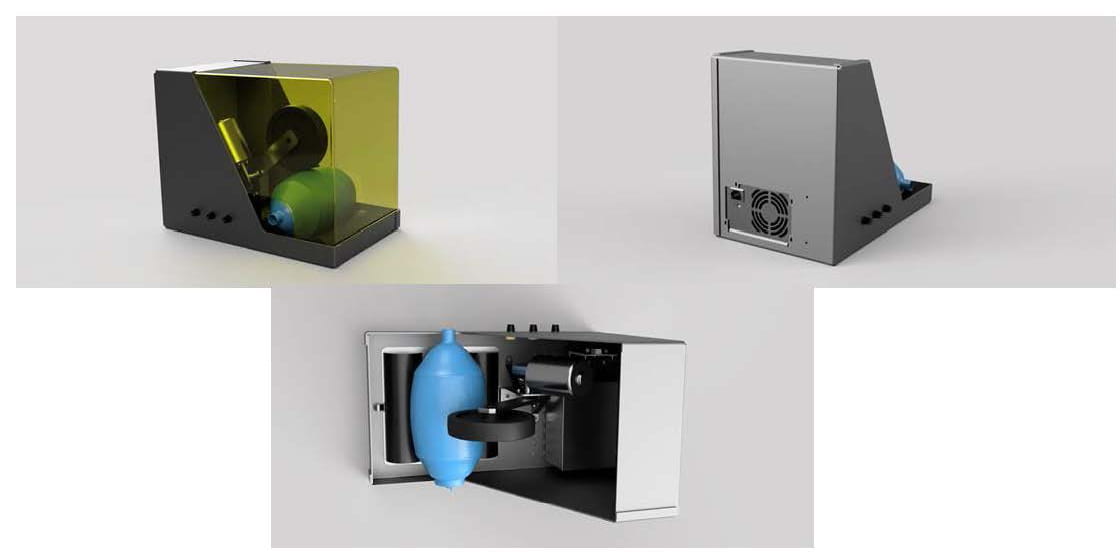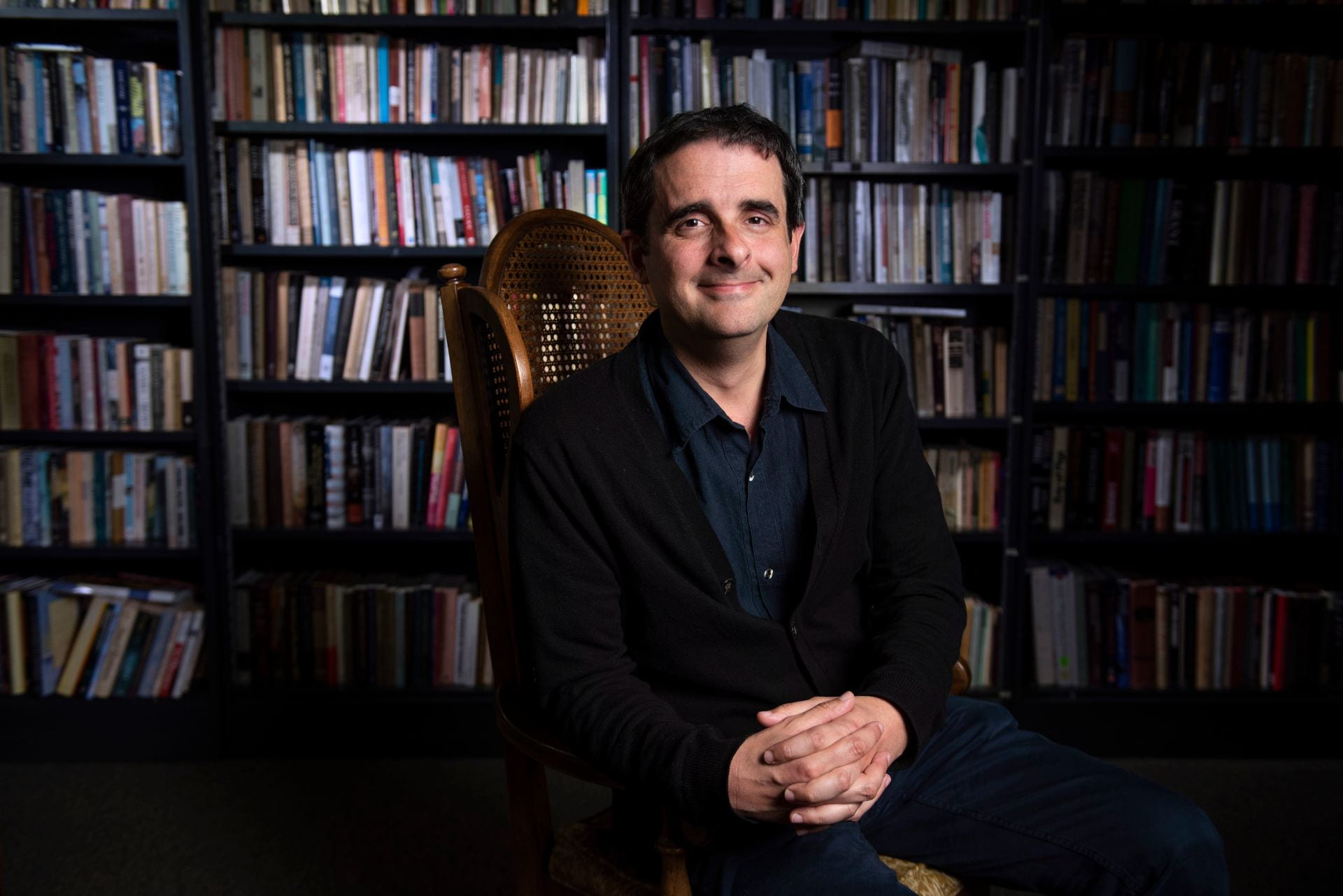James Bullock to become new dean of UCI School of Physical Sciences
Noted cosmologist is currently chair of Department of Physics & Astronomy

Irvine, Calif., May 17, 2019 – James Bullock, professor and chair of physics & astronomy at the University of California, Irvine, has been appointed dean of the School of Physical Sciences. He will assume the new role on July 1, upon the retirement of Dean Kenneth Janda.
“Professor Bullock is an outstanding scientist, gifted teacher and strong leader,” said Chancellor Howard Gillman. “He has been a great department head, and I am delighted that he has agreed to serve as dean.”
Bullock joined UCI in 2004. As chair of physics & astronomy, he has overseen the recruitment of nine new faculty members and the establishment of the UCI Center for 2D Materials Research. He is a past director of the UCI Center for Cosmology.
“It’s a tremendous honor to be named the next dean of physical sciences and to help build upon a history that is staggeringly inspirational,” Bullock said. “Our faculty and students are the best in the world at what they do, and we are poised to redefine how we live and understand the world around us.”
Researchers in UCI’s School of Physical Sciences have been responsible for some of history’s most monumental discoveries. The world learned that human aerosol emissions were depleting the Earth’s ozone layer as a result of work by UCI founding faculty member F. Sherwood Rowland and postdoctoral scholar Mario Molina, who were co-recipients of the 1995 Nobel Prize in chemistry. Frederick Reines, also a founding faculty member, won the 1995 Nobel Prize in physics for his discovery of the neutrino, an elusive particle thought by physicists to be undetectable.
“Today we are taking on even greater challenges, such as clean energy and climate change, quantum information and the fundamental makeup of the universe,” Bullock said. “It’s a special time at UCI, and I’m excited to be part of it.”
Bullock’s research interests include cosmology, galaxy formation, dark matter and the Milky Way. He is currently chair of the users committee for NASA’s flagship James Webb Space Telescope, successor to the Hubble Space Telescope. He has been honored as a Chancellor’s Fellow and has received two UCI Celebration of Teaching Awards. In 2008, he was named a fellow of the American Association for the Advancement of Science.
Before joining UCI, Bullock was a Hubble Postdoctoral Fellow at Harvard University and a postdoctoral fellow in astronomy and physics at Ohio State University. He earned a bachelor’s degree in physics and mathematics at Ohio State University and a Ph.D. in physics at UC Santa Cruz.
“Since joining UCI in 2004, Professor James Bullock has been a shining example of a faculty member ascending through the ranks to an academic leadership role as dean of UCI’s School of Physical Sciences,” said Enrique Lavernia, UCI provost and executive vice chancellor. “I expect that he will build upon the solid foundation of the school to continue its advancement for years to come.”
The School of Physical Sciences was established in 1965 with 212 undergraduates, 55 graduate students and 25 faculty members. Now 54 years later, it has grown to more than 2,100 undergrads, over 500 graduate students and 159 faculty members. At its inception, the school was home to the departments of Chemistry, Mathematics and Physics & Astronomy. The Department of Earth System Science, which began as a graduate program in 1989, was created in 1994.
About the University of California, Irvine: Founded in 1965, UCI is the youngest member of the prestigious Association of American Universities. The campus has produced three Nobel laureates and is known for its academic achievement, premier research, innovation and anteater mascot. Led by Chancellor Howard Gillman, UCI has more than 36,000 students and offers 222 degree programs. It’s located in one of the world’s safest and most economically vibrant communities and is Orange County’s second-largest employer, contributing $5 billion annually to the local economy. For more on UCI, visit www.uci.edu.
Media access: Radio programs/stations may, for a fee, use an on-campus ISDN line to interview UCI faculty and experts, subject to availability and university approval. For more UCI news, visit wp.communications.uci.edu. Additional resources for journalists may be found at communications.uci.edu/for-journalists.


